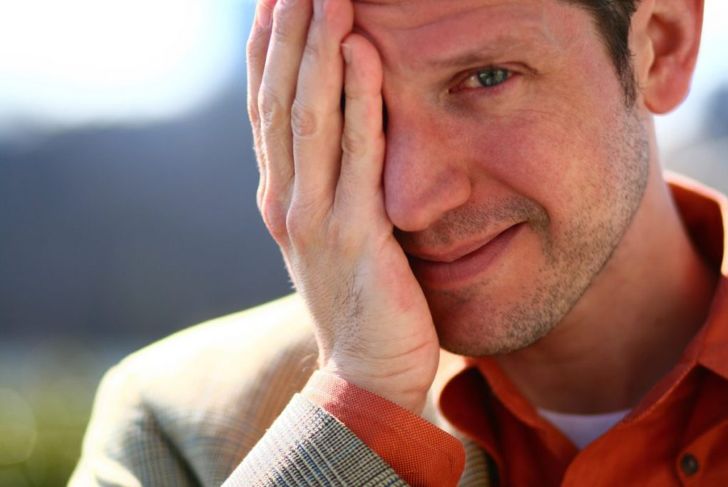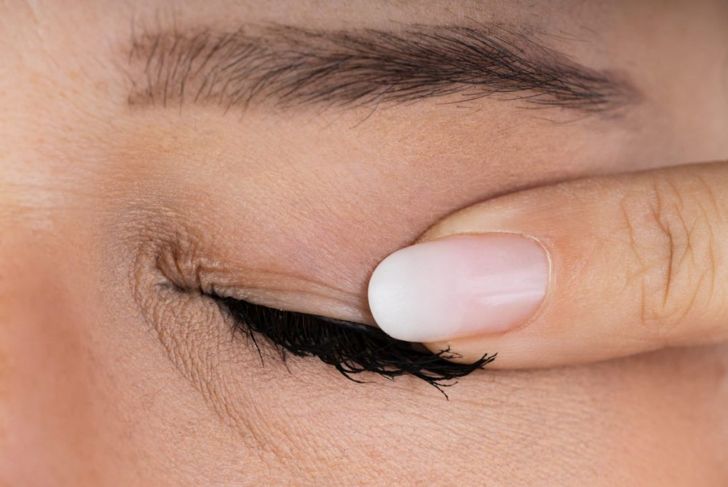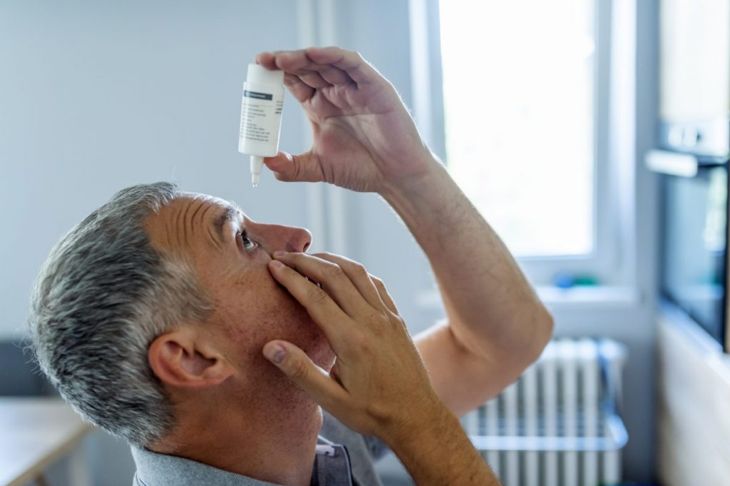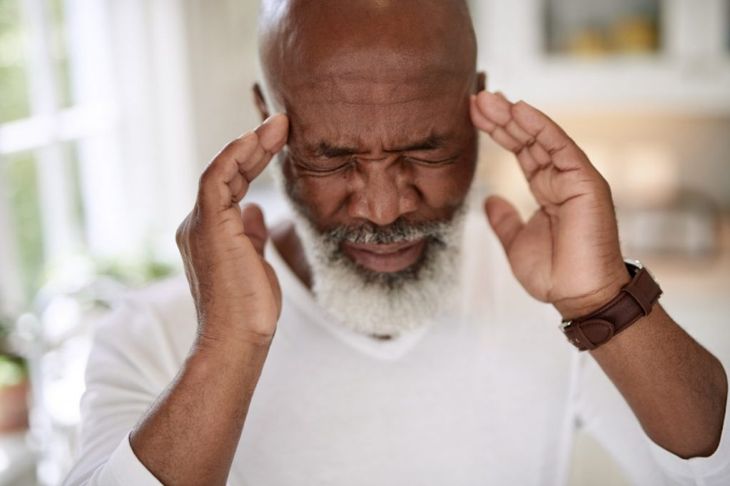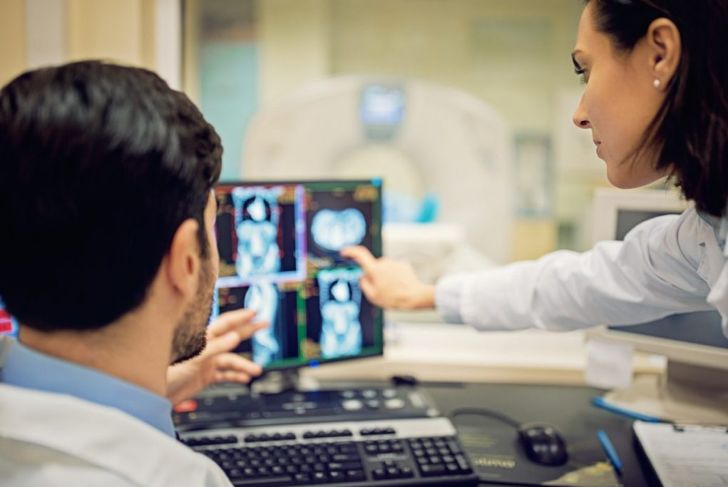Eye twitches, known medically as myokymia, are seemingly random spasms of the eyelid muscles. Though they usually occur in the upper lid, the lower lid may twitch as well. Most of the time, these twitches are mild and eventually resolve themselves, though in rare cases, they can become chronic or more severe, indicating a serious underlying issue. Most spasms have straightforward causes, are painless, and are more annoying than harmful.
Stress
One of the most common causes of eyelid twitching is stress. Certain situations trigger the release of stress hormones that produce a range of physiological effects. They can make the heart beat faster or quicken breathing. Muscles throughout the body become tense, which can result in spasms in the eyelid. The best way to prevent stress from causing twitches is to eliminate the stressful event or take up stress-reducing activities. Eye strain from staring at a computer screen too long is another type of stress that can trigger myokymia.
Alcohol
Alcohol often affects the central nervous system. In addition to coordination issues and difficulty speaking that can stem from excessive drinking, experts believe the practice can also cause the eyelid muscles to twitch. Depending on the severity of the spasms, they may resolve themselves once the person is sober.
Caffeine
One of the most widely available stimulants is caffeine, which is present in energy drinks, and sodas as well as coffee and tea. Caffeine antagonizes adenosine receptors, which increases alertness. Because the stimulant affects the central and autonomic nervous systems, it can alter brain functions such as sleep, cognition, memory, and learning. In large doses, caffeine may cause eyelid twitching. This often occurs after excessive consumption of beverages very high in the stimulant, such as energy drinks.
Fatigue and Sleep Deprivation
If a person experiences a lack of sleep, their eyelids may begin to twitch. Sleep deprivation has a range of effects because sleep is such an integral process for every aspect of wellness. A significant or long-term lack of sleep can result in eye twitching. When deprived of sleep, the muscles that control the eyelids fatigue and become irritable and prone to twitching. Plus, people who are tired often consume more caffeine, another contributor to this symptom. Keeping a regular sleep schedule helps reduce fatigue and eyelid twitching.
Benign Essential Blepharospasm
If eye twitching becomes chronic, it could be a sign of benign essential blepharospasm. This condition’s characteristic symptoms are uncontrollable winking and blinking. It usually affects both eyes, and the cause is unknown. Certain factors may make the spasms worse, which results in twitching rather than blinking. As the condition worsens, a person may develop blurry vision, increased light sensitivity, and facial spasms.
Blepharitis
The eyelids exist to protect sensitive eye tissues from debris and injury. Eyelashes also play a role in the protective process, but they can also cause twitching, in some instances. The eyelash follicles contain oil glands that may become irritated or clogged, causing several possible conditions. Among these is blepharitis or eyelid inflammation. In addition to symptoms such as itchy or swollen eyelids, the muscles near the eyelid may begin to spasm.
Dry Eyes
Some people don’t produce enough tears, or their bodies create tears that can’t keep the eyes moist. When this happens, the eyes remain dry, and foreign materials are not washed away. Symptoms of dry eye include stinging sensations,redness, and eyelid twitching. There are many reasons a person may not be able to keep their eyes moist. As humans age, they produce fewer tears, especially post-menopausal women. Vitamin A deficiency, eye injuries, staring at a computer screen too long, some medications, smoking, exposure to wind or dry air, and certain medical conditions may all cause a lack of tears. Dry eyes may cause benign essential blepharospasm to worsen.
Light Sensitivity
Photophobia, known generally as light sensitivity, is another possible reason for eyelid spasms. Mild cases may make an individual squint in brightly lit areas, while more severe cases can cause extreme pain. One of the common causes of temporary photophobia is migraines. Other causes include encephalitis, meningitis, and bleeding between the brain and its surrounding tissues. Pink eye, dry eye, conjunctivitis, and cornea injuries can also lead to light sensitivity.
Central Nervous System Disorders
Because the nervous system plays such an integral role in the body, many nerve disorders include eyelid twitching as a mild symptom. The central nervous system or CNS involves the brain and spinal cord. Some CNS disorders that can cause eye twitching are
Tourette syndrome, which causes involuntary muscle movements
Multiple sclerosis, which can lead to muscle control problems and fatigue
Parkinson’s disease, which can cause trembling muscles and muscle stiffness
Other Neurological Conditions
Neurological conditions that affect other parts of the nervous system may also include eye twitching as a symptom. These conditions are:
Dystonia, a movement disorder where the muscles contract involuntarily
Spasmodic torticollis, or cervical dystonia, which is a painful twisting and turning of the neck
Bell’s palsy, or facial palsy, the most common cause of facial paralysis
Meige syndrome, which is a nervous system movement disorder

 Home
Home Health
Health Diet & Nutrition
Diet & Nutrition Living Well
Living Well More
More



